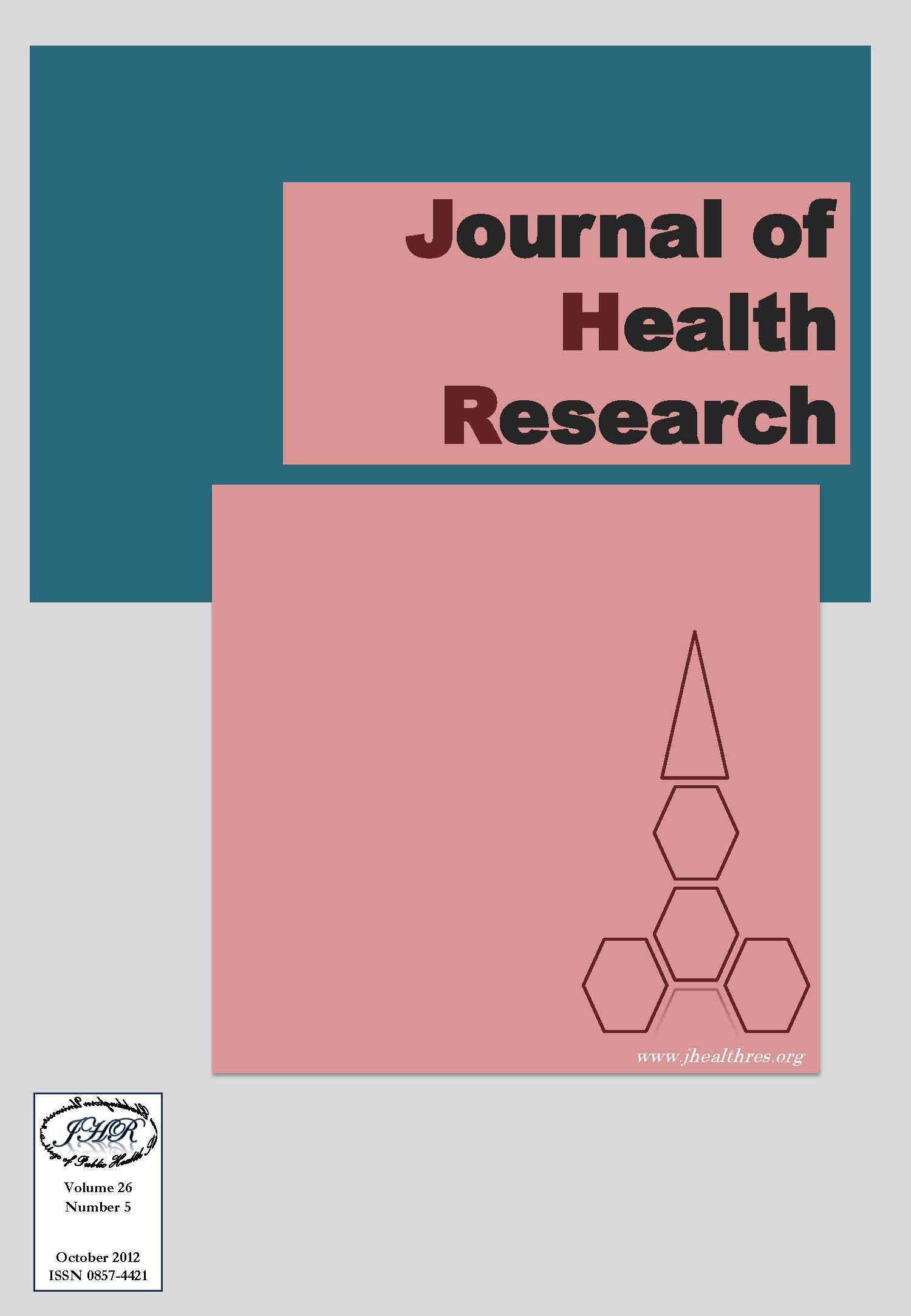Self-Management Program on Blood Pressure Control in Thai Hypertensive Patients at Risk for Stroke : a Randomized Controlled Trial
Keywords:
Self-management Program, Hypertensive Patients, Blood Pressure ControlAbstract
To determine the effects of self-management program on blood pressure control in hypertensive patients at risk for stroke, a randomized controlled trial design was conducted at the outpatient medicine clinic at Police General Hospital during July 2011 to February 2012 to evaluate the effectiveness of a self management program based on the Kanfer and Goelick-Buy (1991) self management model compared with usual care in improving blood pressure control. The participants were enrolled on criteria basis and computerized simple randomization into two groups and sealed envelope technique to divide equally to the experimental or the comparison groups (50/group). The intervention group attended four phases; problem assessment, need identification, preparation for self-management, practice for self-management, and evaluation self-management phases. The outcome of this study was blood pressure control which was measured at baseline and monthly over three months. Data were analyzed by Chi-square test. At three months the percentage of participants maintaining blood pressure control was significantly (p = .001) greater in the intervention group (36%, 95%CI = 0.22 to 0.50) compared with the control group (8%, 95%CI = 0.00 to 0.16). An effort to establish in large scale, long duration and sustainable self-management program is recommended.







